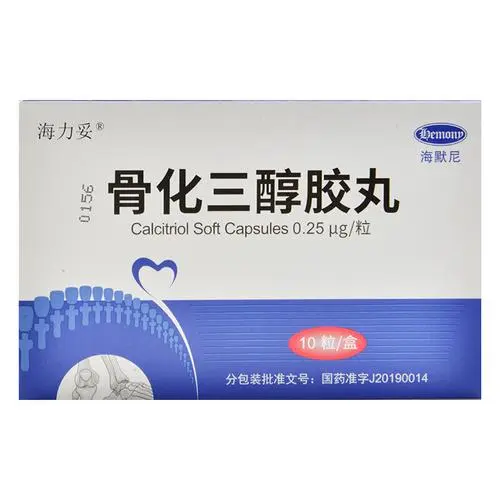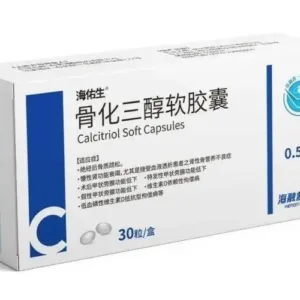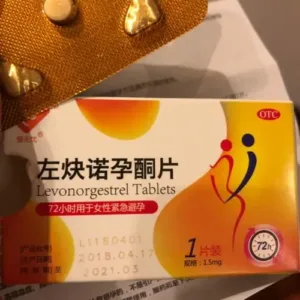Calcitriol Soft Capsules
Function:
For postmenopausal and senile osteoporosis. For the treatment of renal osteodystrophy in patients with chronic renal failure (especially those receiving hemodialysis). For the treatment of hypocalcemia and/or secondary hyperparathyroidism in patients with chronic renal dialysis. For idiopathic, pseudo, or postoperative hypoparathyroidism. It is used for vitamin D-dependent rickets and hypophosphatemic vitamin D-resistant rickets. Topically administered to treat mild to moderate psoriasis.
Dosage:
Adult dosage: Postmenopausal and senile osteoporosis, 0.25 μg is administered orally once, twice a day. Serum calcium and serum creatinine were measured at the 4th week, 3rd month, and 6th month after taking the medication, and then monitored every 6 months. Please follow your doctor’s advice for details. The initial oral dosage for renal osteodystrophy (including dialysis patients) is 0.25 μg per day; for those with normal or slightly low blood calcium, 0.25 μg every 2 days is enough. If there is no significant improvement in biochemical indicators and condition within 2 to 4 weeks of taking the drug, increase the daily dose by 0.25 μg every 2 to 4 weeks, and measure blood calcium at least twice a week during this period. The optimal dosage for most patients is 0.5~1.0μg per day. Please follow your doctor’s advice for details. In patients with chronic renal dialysis who have hypocalcemia and/or secondary hyperparathyroidism, intravenous injection should be administered through the hemodialysis catheter after dialysis. The recommended dose is 0.5 μg (0.01 μg/kg) once every 2 days, 3 times a week. If ideal biochemical indicators and clinical response cannot be obtained, the dose can be increased by 0.25~0.5 μg every 2 to 4 weeks. During this period, blood calcium and phosphorus should be measured at least twice a week. 0.5~3μg (0.01~0.05μg/kg) once and 3 times a week is effective for most dialysis patients. Please follow your doctor’s advice for details. The initial oral dose for hypoparathyroidism and rickets is 0.25 μg per day, taken in the morning. If there is no significant improvement in biochemical indicators and condition, increase the dose every 2 to 4 weeks, and measure blood calcium at least twice a week during this period. Patients with hypoparathyroidism may occasionally experience poor absorption, in which case a larger dose should be given. Topical medication for mild to moderate psoriasis: Apply a thin layer to the affected area after cleaning, twice a day (once in the morning and once in the evening, and use it in the evening after cleansing before going to bed). The daily application area should not exceed 35% of the body surface area, and the daily application amount should not exceed 30g. Clinical experience with administration beyond 6 weeks is limited. Note: The optimal daily dose of this drug should be carefully determined based on the patient’s blood calcium level. This drug should be started at the lowest possible dose and should not be increased without monitoring blood calcium levels. Special populations: Dosage for the elderly: It is not clear whether there is a difference in the response to this drug between elderly people aged 65 and over and younger people. The elderly should choose their dosage carefully, usually starting at the lower end of the dosage range. Pediatric Dosage: The safety and effectiveness of this drug in children are not known, so its use in children is not recommended. Patients who are bedridden (such as those who are bedridden after surgery): Such patients are at a higher risk of developing hypercalcemia when using this drug and should be more vigilant.
Drug contraindications:
Disabled if allergic to this product
Related dosage forms:
Capsules, soft capsules, injections, ointments
Share:
Products
Our offers
Health Classification
Let us work together to protect precious health






























